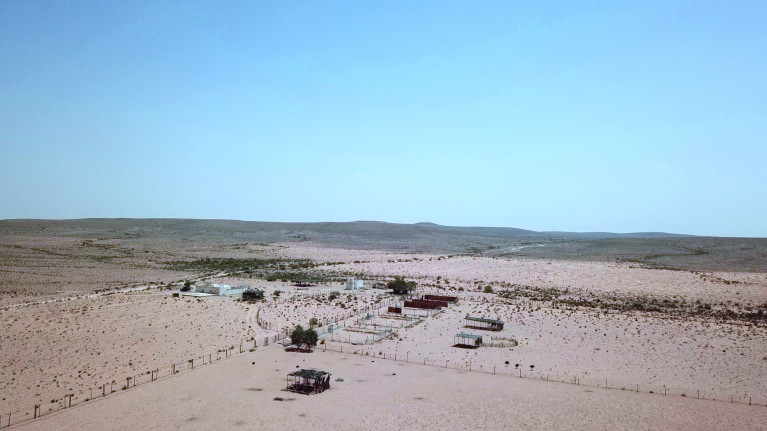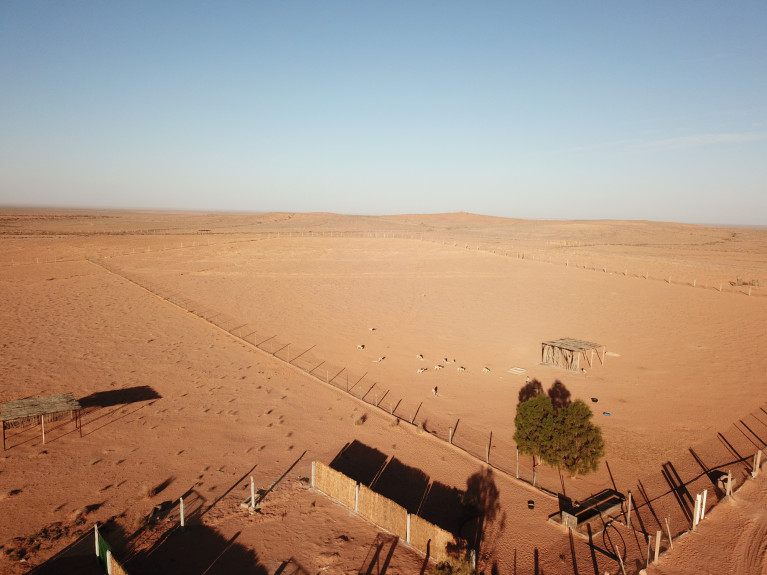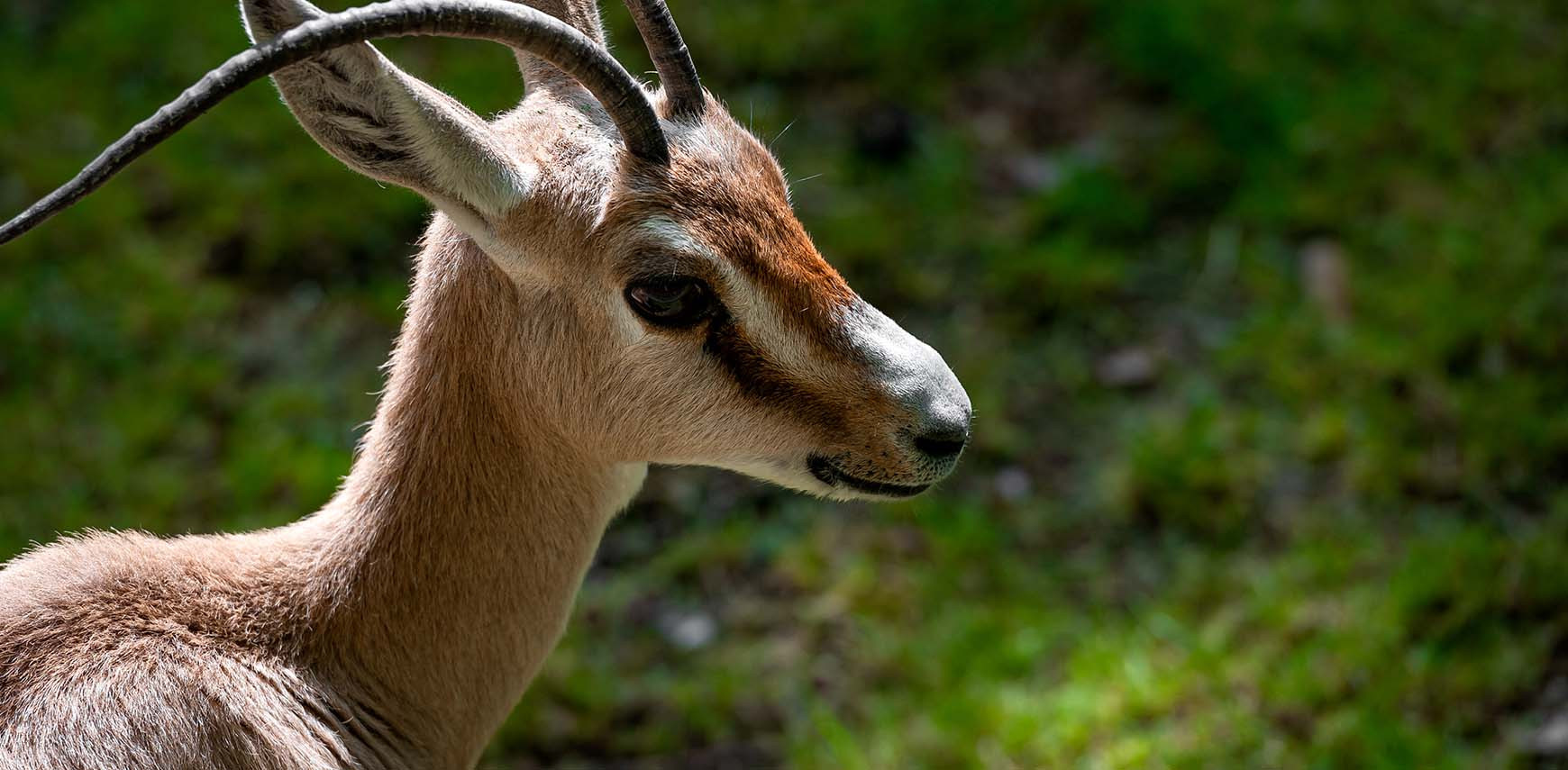Planckendael ZOO Helps Save Endangered Slender-Horned Gazelles in Tunisia
‘Once home to Europe’s last slender-horned gazelle, our ZOO is now saving the species in the wild.’
Planckendael ZOO is offering the slender-horned gazelle, one of the most critically endangered gazelle species in the world, hope for a secure future. The ZOO has been supporting a vital breeding programme in Tunisia’s Sidi Toui National Park by providing financial aid, sharing its expertise in population management, and donating several of its own carefully bred and raised animals. ‘This programme comprises an important step in the conservation of this elegant species and its possible reintroduction into the wild’, explains Sander Hofman, Animal Care Manager at Planckendael ZOO, the last European zoo to have housed a slender-horned gazelle.
The slender-horned gazelle’s fight against extinction is becoming increasingly desperate. This sandy-hued gazelle species with its slender horns, slim legs and relatively long neck is native to the expansive sand dunes of the Sahara Desert between Algeria and Tunisia. The population in the wild is threatened with extinction and is currently made up out of no more than 300 to 600 adult animals. Their numbers are dwindling as they fall prey to poaching on a daily basis and face the increasing disruption of their habitat. At Planckendael ZOO and in Tunisia’s Sidi Toui National Park – where these animals can be found in the wild – they understand the importance of immediate intervention to prevent the species from extinction.
ZOO animals increase diversity
Planckendael ZOO’s contribution to the project goes much further than solid financial aid to benefit the infrastructure. ‘In 1999, we decided to send two animals from our zoo in Mechelen to Tunisia. They were to be given a home in Sidi National Park, together with the other slender-horned gazelles who had been saved from illegal hunting’, explains Sander Hofman, Animal Care Manager at Planckendael ZOO and Antwerp ZOO. ‘Our two gazelles have significantly increased the genetic diversity within the group.’
‘Our initiative currently comprises the largest genetically diverse population in the world and is vital to the potential reintroduction of the species into the wild.” – Tania Gilbert (Marwell Wildlife)
Today – 25 years later – it is clear that this contribution has made an immense difference. ‘Thanks to our initiative, we currently have the largest genetically diverse population in the world here, which is vital to the potential reintroduction of the species into the wild. The foundation has been laid for a group that can safeguard the species from extinction,’ says Tania Gilbert of Marwell Wildlife, the project’s local wildlife conservation partner in Tunisia.
Dating hotel & bachelor pad
Funding provided by Planckendael ZOO and other organisations enabled Marwell Wildlife to create an enclosure for a group of slender-horned gazelles to live in complete safety in its natural habitat in Tunisia. Gilbert: ‘Our current population comprises 37 animals: 8 males, 20 females and 9 calves. Our four breeding enclosures (for one male and two females) ensure the best possible circumstances for mating. Males that are too young to breed are housed in a separate ‘bachelor pad’ located far enough away from breeding enclosure to ensure as little disruption as possible.’

Providing optimum housing for this species is far from easy, so all other aid from Planckendael ZOO is welcome. ‘The animals can be competitive and aggressive, particularly during the mating season. Obviously, we want to prevent the animals from injuring one another,’ explains Marie Petretto, Project Coordinator at Marwell Wildlife. Planckendael ZOO was happy to come to her aid. ‘We were happy to share our experiences with this species, as well as our concrete expertise in breeding, our insights into the management of the species’ studbook, and our expertise in population management. Considering that Planckendael ZOO was the last zoo in Europe, up until 2024, to house slender-horned gazelles, we have a great deal of experience with this species’, concludes Sander Hofman.
A win/win situation for humans and animals
In addition to the above, Planckendael ZOO, in conjunction with international partners such as Fossil Rim in Texas, facilitated training sessions for local teams in Sidi Toui National Park. As a result, the local staff can now celebrate both minor and major successes. Tunisian Project Coordinator Marie Petretto illustrates: ‘It was fantastic to see how several local park guards managed to save animals in critical conditions. In fact, a few gazelles with only three legs have not only survived due to their dedicated care but have even successfully bred several times.’
‘We are happy to share our concrete expertise in breeding, our insights into the management of the species’ studbook, and our expertise in population management.’ – Sander Hofman, Animal Care Manager at Planckendael ZOO

The wildlife conservation initiatives also help local communities in a broader context. ‘Thanks to these training sessions and this exchange of information, members of the local population who want to join us in saving the slender-horned gazelle can now reap increasing economic benefits. There are more jobs, there are more opportunities thanks to eco-tourism, and more alternatives to poaching. The ecosystem is also being restored: by protecting the slender-horned gazelles, a sustainable relationship between humans and the natural environment is fostered.’
Immense impact
‘Without the international support of partners such as Planckendael ZOO, this protection project would simply not have been possible.’ – Tania Gilbert (Marwell Wildlife)
‘Our collaboration with international partners such as Planckendael ZOO and Antwerp ZOO has been invaluable to us. In all truth, we wouldn’t have been able to progress the project without them,’ concludes Tania Gilbert. ‘Their financial support has been crucial for upgrading facilities, and for organising the first training sessions with our local teams. It is also thanks to this support that Tunisian park staff can manage the gazelle population sustainably. Without this international support, the progress we've made would not have been possible.’

